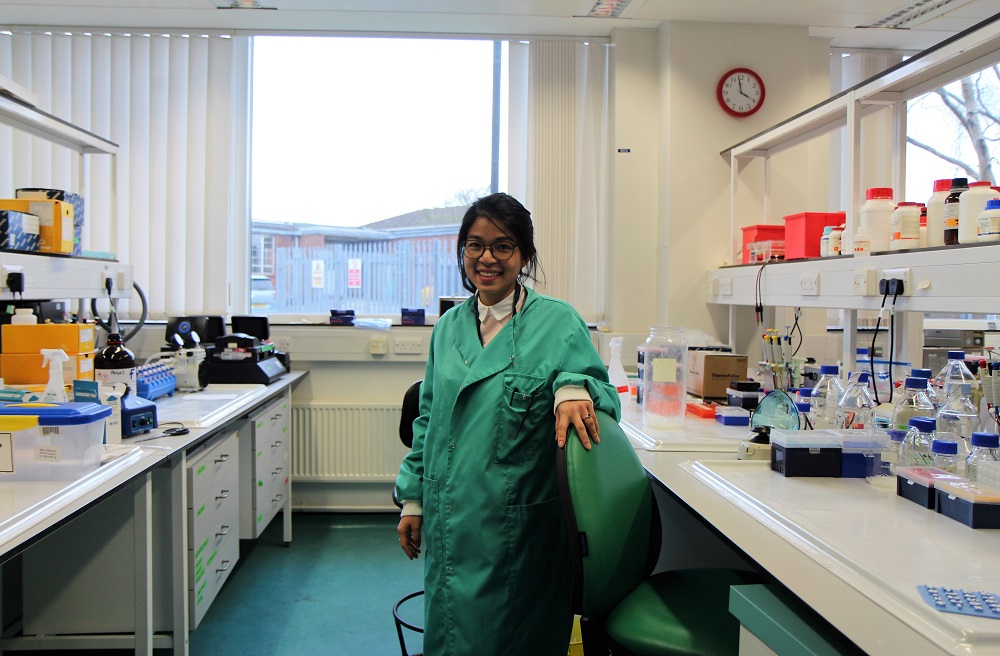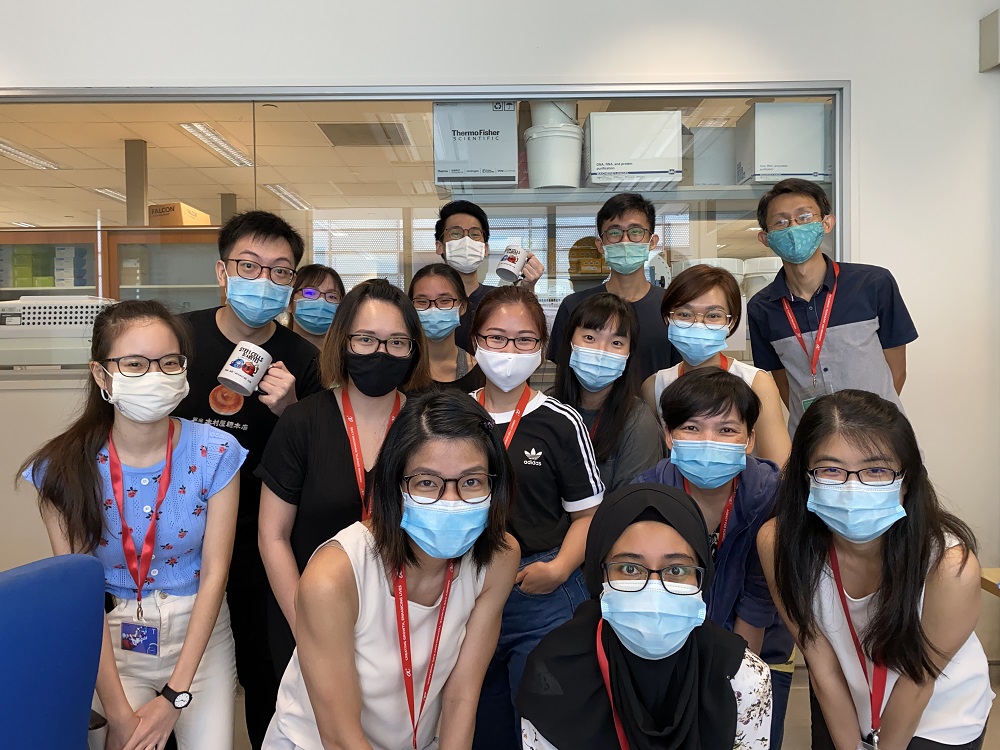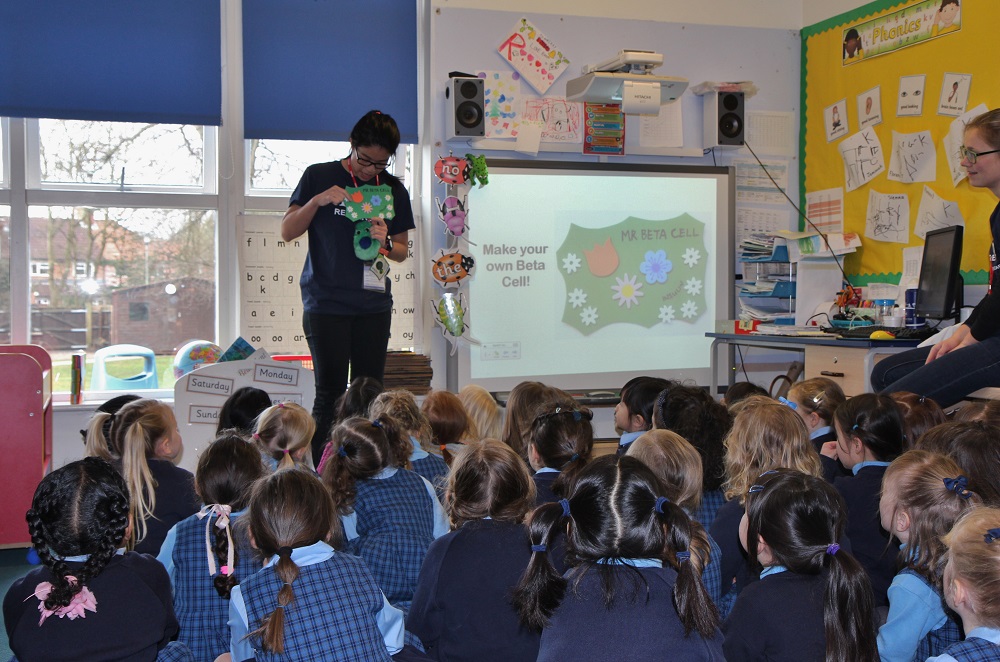FACES OF A*STAR
Dr Natasha Ng: Be comfortable with discomfort
 Dr Natasha Ng, researcher with A*STAR’s Institute of Molecular and Cell Biology and recipient of the National Science Scholarship (BS, 2008 and PhD, 2012)
Dr Natasha Ng, researcher with A*STAR’s Institute of Molecular and Cell Biology and recipient of the National Science Scholarship (BS, 2008 and PhD, 2012)
At 13, Natasha Ng fell in love with biology when an animated teacher brought the subject to life. Intrigued by the exciting nuggets the teacher dished out, Natasha saw biology as a vast terrain waiting to be explored.
Twenty years on, this is exactly what she is doing. As a scholar and researcher with A*STAR’s Institute of Molecular and Cell Biology, the 33-year-old is working on finding a cure for diabetes.
Dr Ng, a two-time recipient of the National Science Scholarship (NSS) (BS, 2008 and PhD, 2012) awarded by A*STAR, shares her research journey.
1. What led you to research on diabetes at A*STAR?
When I interned at the Ministry of Social and Family Development after my A-levels, one of the directors asked why I did not apply for the NSS, given my interest to pursue a Life Sciences degree. I had not considered the scholarship because I lacked research experience. I assumed that I was not smart enough for it, and like many others, thought that research was dull. However, he wrote an email nominating me to A*STAR, which opened the opportunity for me to eventually land the scholarship.
After my undergraduate studies, an A*STAR mentor advised me to pick my research specialisation in metabolism, since I was interested in human diseases and I wanted to pursue a research area that is highly relevant to Singapore. Now, my research focuses on the pancreatic beta cells which produce insulin, the key hormone in the body that controls blood glucose.
2. Have there been any research breakthroughs?
In my current lab at A*STAR, we have identified some promising pathways and gene targets that influence the insulin secretion function of beta cells. We have also developed a platform to generate unlimited numbers of insulin-producing cells in a dish, and we are in the process of testing these technologies in animal models.
 Dr Ng (front row, left) and her colleagues at A*STAR
Dr Ng (front row, left) and her colleagues at A*STAR
Together with my lab supervisor, we spun out a company, BetaLife, from A*STAR to develop this technology and commercialise this research. With our promising stem cell model findings, we hope to create insulin-producing pancreatic beta cells as a cell replacement therapy for diabetes.
3. Tell us more about the medical device start-up you also co-founded when in Oxford?
BioMe Oxford was founded in 2015 because my fellow PhD colleagues and friends in Oxford wanted to do something different from our everyday research work. We explored the idea of human gut microbiome sampling as a project for a business competition and thankfully, we received good traction from our pitch. This gave us confidence that this could be worthy to pursue as a startup.
We are now developing a capsule device that can be ingested to collect a gut sample of the consumer’s microbiome for analysis, which more accurately represents the bacteria found in the small intestine, compared to stool sampling, for example.
4. How do you juggle work with your personal life?
I have never been satisfied with doing just one thing. Extra activities, especially volunteering, helps me to step out of the daily routine work and realise that there is a larger world out there that I can meaningfully contribute to.
 On top of her daily routine work, Dr Ng engages in activities such as volunteering.
On top of her daily routine work, Dr Ng engages in activities such as volunteering.
To achieve both your career and personal goals, I believe in work-life integration. Learning how to embrace challenges, manage constant levels of stress, and not taking every little thing too seriously, keeps me going every day.
It is important to be comfortable with discomfort, to know that it is okay to be vulnerable, and to watch and learn.
5. What keeps you motivated?
I am very lucky to be in a job that I find meaning in, and part of the motivation comes from the fact that my work is not mundane. I get to do many different things such as lab work, writing and pitching, and mentoring students.
One piece of advice I would give to young researchers is to keep an open mind and recognise that every challenge is an opportunity to grow.
Was this article helpful?
A*STAR celebrates International Women's Day

From groundbreaking discoveries to cutting-edge research, our researchers are empowering the next generation of female science, technology, engineering and mathematics (STEM) leaders.
Get inspired by our #WomeninSTEM
